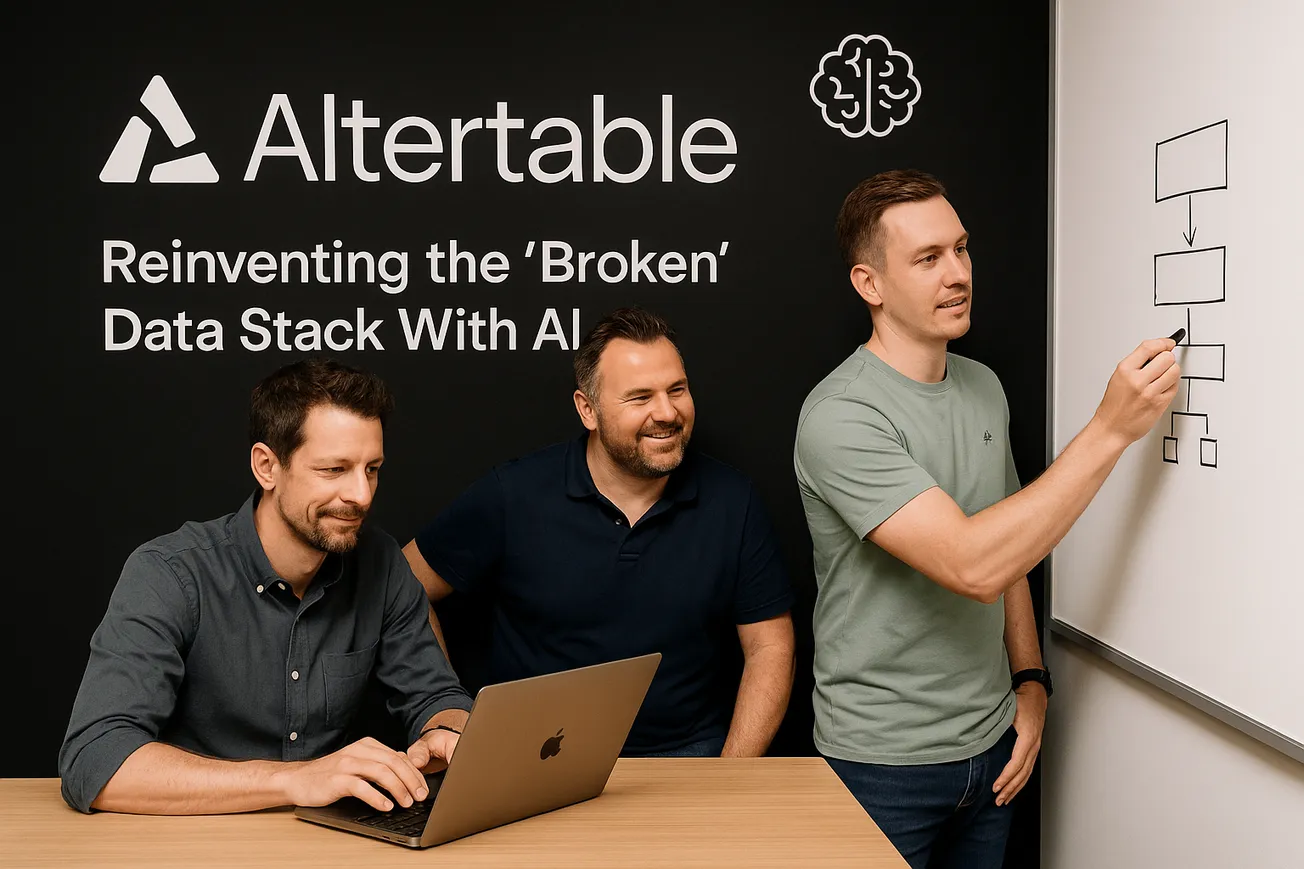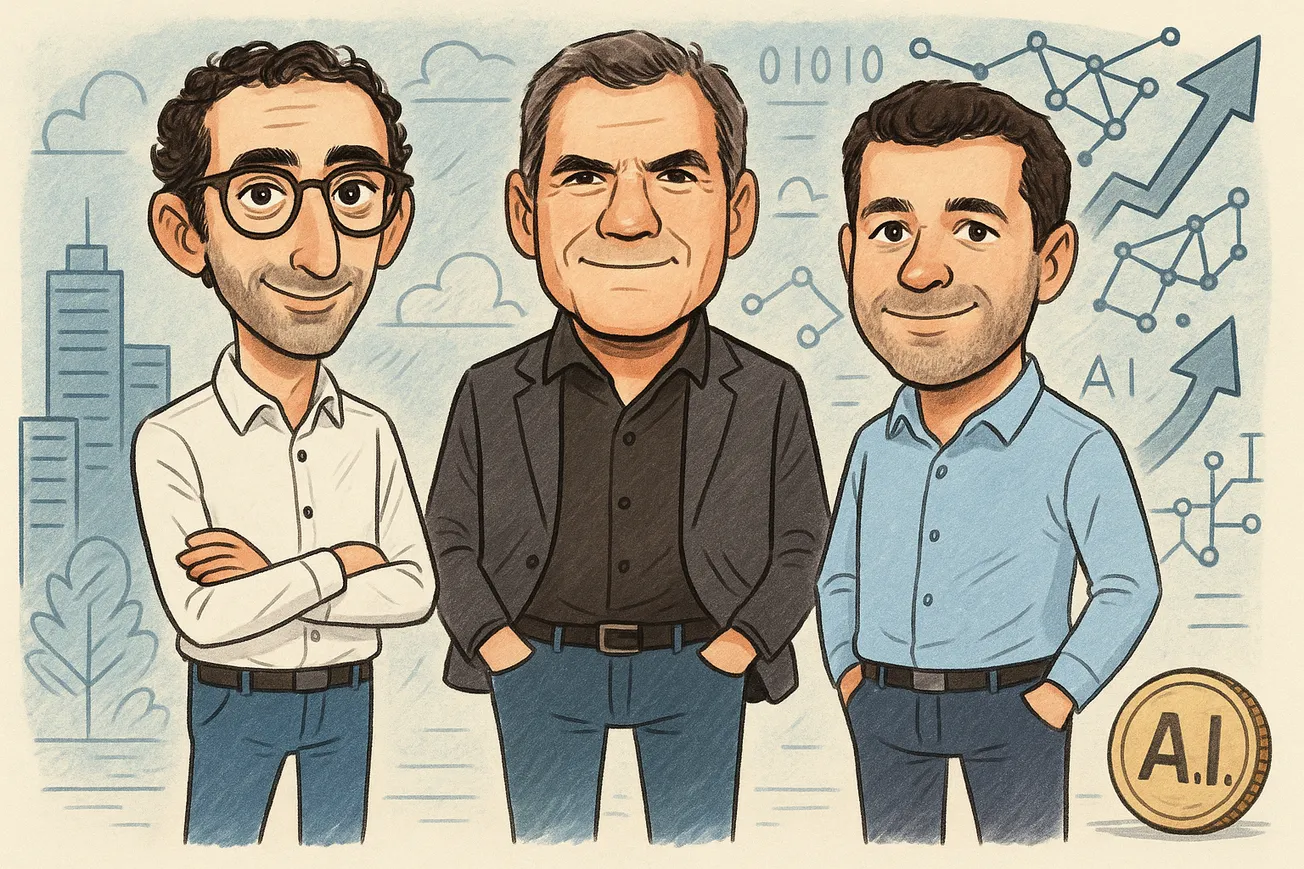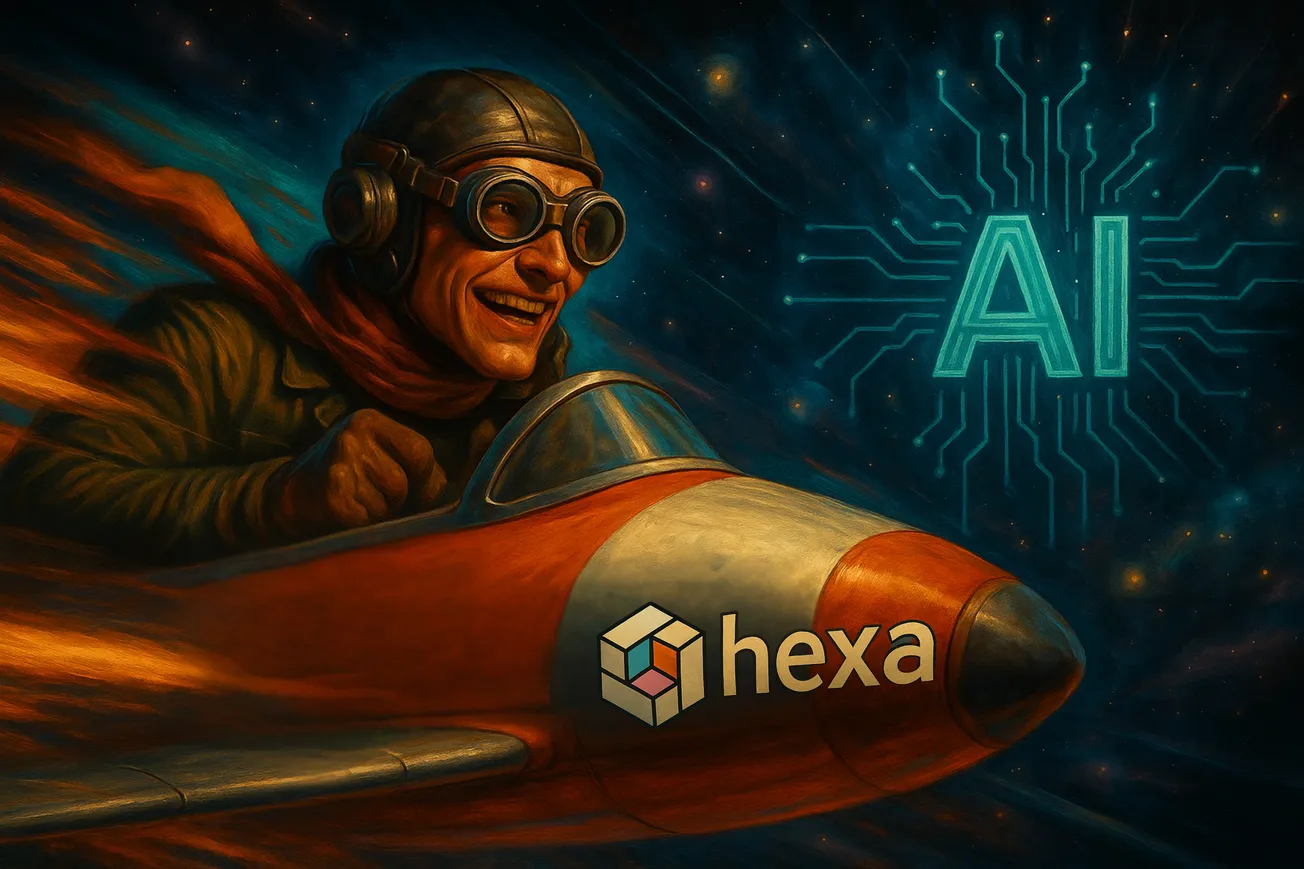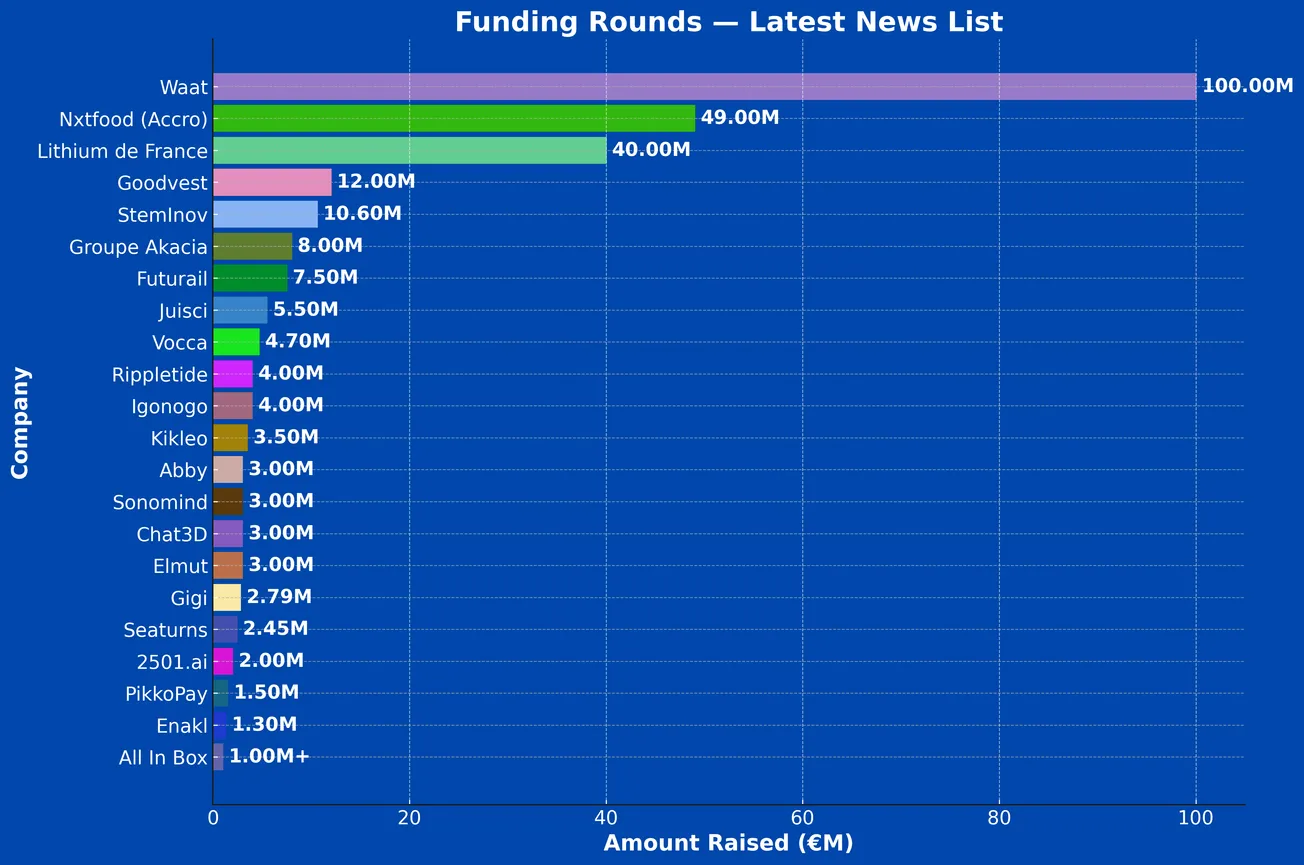The modern data stack is supposed to make companies smarter. Instead, it's making them poorer and slower.
That's the blunt assessment from Sylvain Utard, CEO and co-founder of Altertable, the Paris-based startup that just emerged from stealth with a €2.5 million seed round led by 20VC. The company is building an AI-native data platform designed to replace what Utard calls the "broken modern data stack" that has become an expensive patchwork of tools, pipelines, and glue code.
"We didn't want to patch the broken data stack," Utard said. "We wanted to start fresh."

A Data Journey
Utard's frustrations with data infrastructure crystallized during his time scaling engineering teams at some of Europe's most successful tech companies.
He started his career in 2008 at French search engine company Exalead, where he learned about search engines and natural language processing alongside future French tech luminaries, including Algolia's co-founders Nicolas Dessaigne and Julien Lemoine.
After five years at Exalead, Utard joined Algolia as employee number one and VP of Engineering, helping guide the search-as-a-service company through Y Combinator in 2014 and scaling the engineering team from just himself to over 100 engineers. He spent eight years at Algolia, including six on the executive team, before leaving when the company had reached 500 employees and $120 million in annual recurring revenue.
"It was my best experience and adventure so far," Utard said of his time at Algolia, which involved constant travel between Paris and San Francisco as the company kept engineering in Paris while building sales and solutions engineering in Silicon Valley.
Utard's most illuminating experience came at his next stop: Sorare, the fantasy football gaming company built on blockchain technology. Initially reluctant to join—"guys, I like football, but it's not my passion, and I don't know anything about crypto"—Utard was eventually convinced by Benchmark Capital's Peter Fenton to take the head of engineering role.
"When Peter told me 'Silvain, no one understands what Sorare is doing. But there are 15 people, and they are generating 100 million this year. After eight years at Algolia, you don't have anything to lose. Just go, you know, it's a rocket ship, take a seat,'" Utard recalled.
Data Stack Reality Check
At Sorare, Utard encountered the full complexity of what the industry calls the "modern data stack." It wasn't pretty.
The company had assembled what he describes as "a patchwork of eight or nine tools": Airbyte for ETL data collection, Airflow for custom code, Snowflake for warehousing, Looker for visualization, DBT for data transformation, Elementary for monitoring, Segment for data pushing, and Amplitude for product analytics.
The stack required a dedicated team of five full-time data specialists for a company of just 100 people. The annual cost soared to half a million dollars, excluding personnel.
"Even with this stack of best of breed, even with a full-time team doing only data on a daily basis, it has been fairly painful," Utard explained. "There was no software engineer in my team that were willing to touch the data stack, the ETL, the DBT, the Snowflake."
The fundamental problem, according to Utard, is that despite all the tools and investment, data work remains entirely reactive. "The level of proactivity on the data stack today has been close to zero for every single piece," he said. "For every single task, a human has been required in the loop."
That led Utard to start Altertable, which he co-founded with Kevin Granger, an early Algolia engineer with expertise in developer tools and growth, and his brother Yannick Utard, who scaled backend systems at Sorare with a focus on infrastructure and reliability.

A Vision for Proactive Intelligence
Altertable's approach flips the traditional model. Instead of humans constantly querying dormant data, Utard envisions AI agents that continuously analyze information and surface insights proactively.
"I envision a world where I'm waking up and an agent tells me, Silvain, don't look at your onboarding chart. It's the same as it has been over the past three years. But I've been spending the night segmenting this chart across all the dimensions that I believed were useful. You should look at what's happening in Italy. There is something there," he explained.
The company isn't trying to add yet another tool to the stack, a mistake Utard believes has only created more problems. Instead, Altertable aims to replace core components entirely, starting with storage and visualization layers.
"We are starting Altertable with the willingness to replace some of those tools," Utard said.
Building on Modern Foundations
Rather than reinventing everything from scratch, Altertable is leveraging open-source technologies like Apache Iceberg to build its platform foundations. The company already has a staging environment running with storage, warehousing, and visualization components that decouple storage and compute. similar to Snowflake's architecture but designed from the ground up to be AI-native.
The team expects to have a first product version by the end of 2025, with early access for pilot customers opening in late 2025. But Utard emphasized that the company will take a composable approach, working alongside existing tools rather than requiring customers to replace everything at once.
"We are going to continue working with DBT. We are going to continue working with Segment, we are going to work with Airbyte," he said. "There are some tools on the data stack that we don't want to replace, and DBT or Airbyte are doing great already."
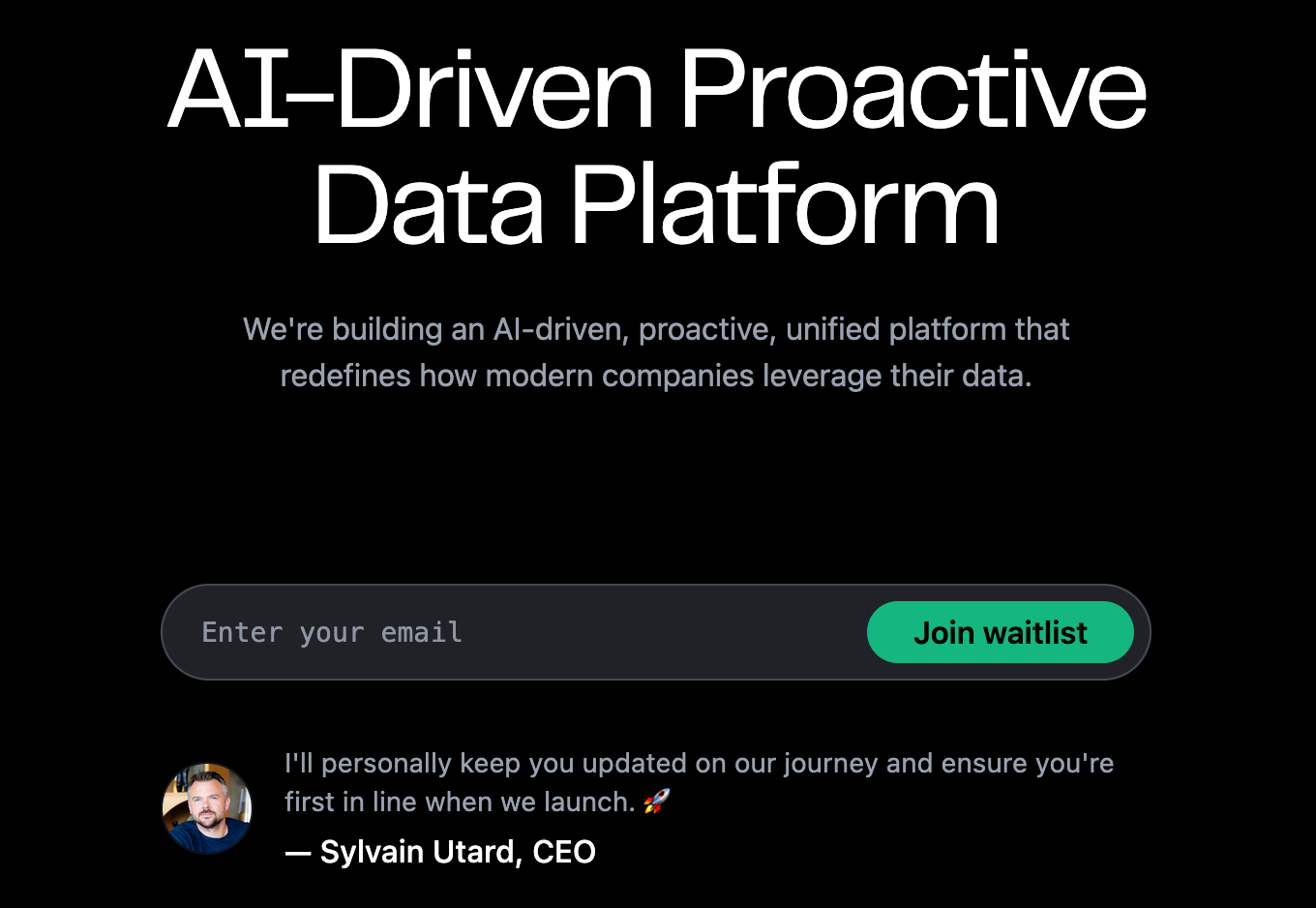
Rethinking the Business Model
Altertable is also challenging traditional data platform pricing models. Utard criticized current approaches that charge based on data volume or user seats, calling them "totally outdated."
"I've been a user of Amplitude for the past almost 10 years. Amplitude I pay by the amount of data that I send to the platform and the number of people who have a seat on the platform. I think those two metrics are totally outdated in today's world," he said.
Instead, the company is exploring usage-based pricing that reflects actual value delivery. "I would like, in three years, to have a team say we are scaling our data team or engineering team. We are not going to hire five people, we are going to hire one person, and we are going to add 40 more agents in Altertable," Utard explained.
High-Profile Backing
The €2.5 million seed round attracted impressive investors, led by 20VC with participation from Drysdale Ventures, Kima Ventures, and notable angels including Datadog CEO Olivier Pomel, Pigment co-founder Romain Niccoli, and Sorare CEO Nicolas Julia.
"This is an A+ team, combining technical depth, execution experience, and a bold vision for what the future of data should look like," said Julien Codorniou, General Partner at 20VC, in a statement.
Targeting the Underserved Market
While acknowledging the challenge of competing with established players like Snowflake and Databricks, Utard believes Altertable has advantages in serving smaller and medium-sized businesses that are priced out of enterprise solutions.
"I believe there is some kind of space where small and medium businesses could definitely be willing to go with a smaller partner," he said, drawing parallels to Algolia's strategy of starting with smaller companies before moving upmarket. "The velocity that a small team has building their whole platform with agents and AI from the get-go is different and very different than adding AI in Snowflake or Databricks with all that you have, with all the legacy."

